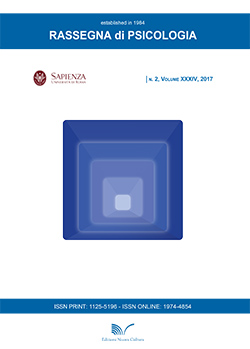Peer Mediated Intervention for adolescents with autism: a pilot study
DOI:
https://doi.org/10.13133/1974-4854/16674Keywords:
Peer mediated intervention, Social interaction, Autism Spectrum Disorder, AdolescenceAbstract
Considered one of the best evidence–based practices in enhancing social responses and communication abilities in children and adolescents with ASD, Peer Mediated Intervention (PMI) involves typically developing peers as the intervention agents to model, reinforce, and promote appropriate social interactions and social skills among children and adolescents with ADS. The sample consisted of 30 adolescents (7 girls) with ASD aged 16 to 19 (Mean age = 16.85; SD = 3.87), attending different public high schools in the centre of Italy (Lazio), their mothers, and 30 teachers (22 females and 8 males), who were responsible for the Individual Education Programs (IEP), one for each classroom, and typically development classmates (N=560) who participated as peer buddies. Higher frequency of social interaction behaviours of adolescents with autism with peer buddies at the end of the program pointed out how the peer mediated intervention in regular school settings may be helpful for their social life.Downloads
Published
2017-06-30
Issue
Section
Articles
License
Copyright (c) 2017 Fiorenzo Laghi, Mariallegra Mancusi, Dariateresa Russo, Valentina Tonchei

This work is licensed under a Creative Commons Attribution 4.0 International License.

